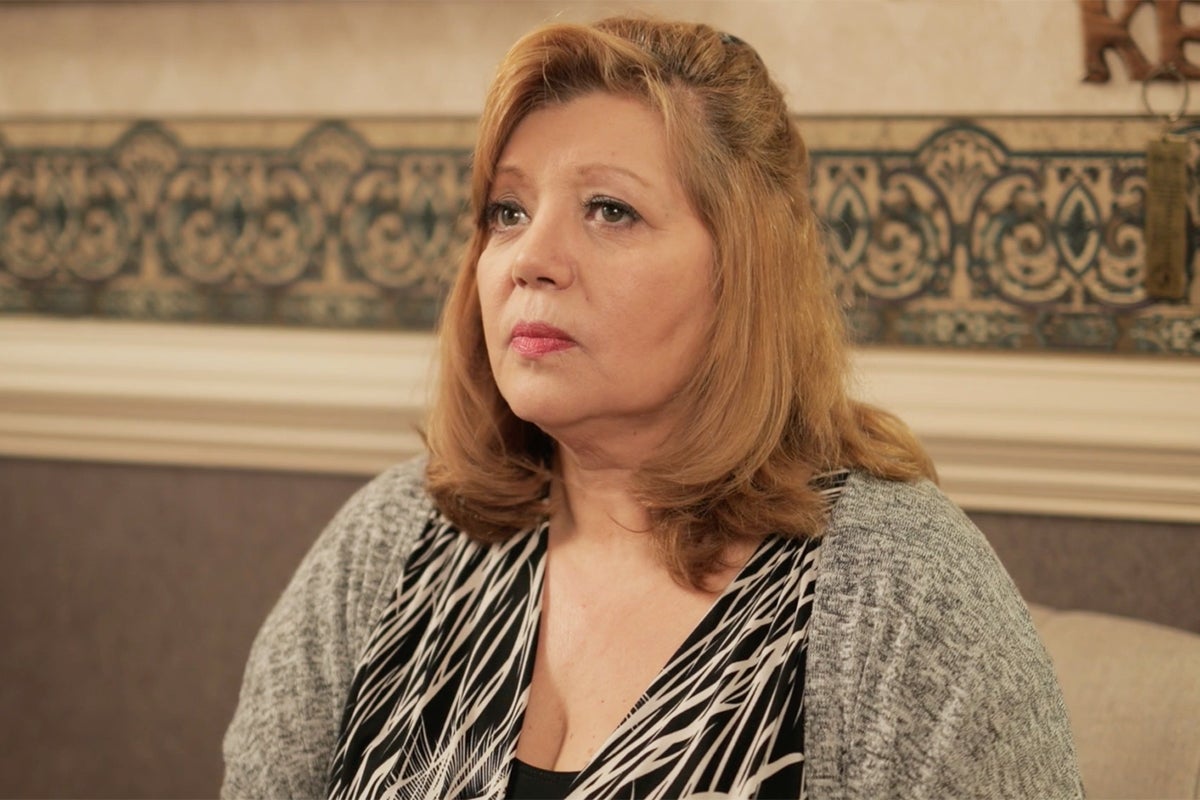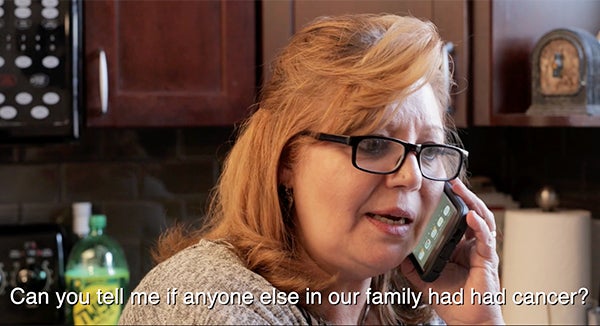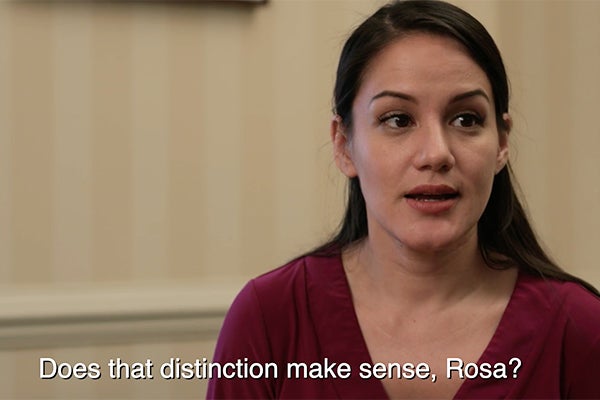Telenovela Empowers At-Risk Latina Women to Seek Genetic Counseling Services

Posted in Lombardi Stories | Tagged cancer, genetic counseling
(October 4, 2019) — While disparities for genetic cancer risk assessment for hereditary breast and ovarian cancer persist between Latina women and their non-Hispanic counterparts, in the United States, there are few culturally targeted interventions.
Armed with an NIH Research Project Grant (R03) and a multidisciplinary team of researchers, community-based organizations, and artists, Alejandra Hurtado de Mendoza, PhD, assistant professor at Georgetown Lombardi Comprehensive Cancer Center, and Vanessa Sheppard, PhD, professor at Virginia Commonwealth University, sought to make genetic counseling more accessible to at-risk Latina women.

“There’s low use of genetic counseling and testing in Latina women at-risk of hereditary breast and ovarian cancer,” Hurtado de Mendoza said. “We wanted to create an intervention that would reduce those gaps.”
In coming up with ideas for an intervention, the team also had to account for the language barrier and a lower health literacy rate among Latina women in Washington, DC.
“There are few materials in Spanish and very few genetic counselors who speak Spanish,” she said. Therefore, she knew that the intervention would need to be completely in Spanish.
Given these factors, they came up with the idea for a “telenovela” video, or Spanish soap opera, to relay the importance of genetic counseling and testing.
Partnering with the Local Community
Partnering with Claudia Campos Galván, MA, chief programs officer and survivorship program director at Nueva Vida, Hurtado de Mendoza and her team interviewed 20 at-risk Latina women, a group that included women with cancer.
They also interviewed 20 health care providers, including social workers, patient navigators and genetic counselors, to develop key messages around genetic counseling to include in the video.
“We learned a lot from these women, mostly that there are several barriers to counseling, and that overall awareness of being at-risk is low,” said Hurtado de Mendoza.
“Most importantly, we learned what motivates them to get these services, and for Latinas, it’s family,” she added. “It was not only learning the information for themselves, but also how this information could help their children and relatives.”
From Focus Group Research to Film
After the initial formative phase, Hurtado de Mendoza was tasked with creating the video on a limited budget. Serendipitously, a Google search led her to the National Conservatory of Dramatic Arts (NCDA) whose president, Ray Ficca, is a Georgetown alumnus.
Nan Ficca, school director at NCDA, was intrigued by the project due to the cause and the unique challenge of working with scientists.

“The most interesting thing for both sides was Alejandra’s team coming from a scientific and academic background and our side working quite differently,” Ficca said. “This had a new twist, a new challenge that we wanted to take on artistically, but also to help spread the word and make medicine and health care more accessible.”
Upon realizing the limited film experience from the Georgetown team, Ficca and NCDA members ran casting, writing, production and post-production for the film.
“[The Georgetown team] wanted something entertaining that could resonate with people, a way to share information without making it scary and clinical,” she said. “They wanted a family and relationships.”
In order to ensure that the information resonated with all generations, the team chose to feature a multi-generational family, with a grandmother, mother and several children.
Once the script was created, the focus groups were brought in to listen to the stage reading and offer their feedback, at which point the script was revised again and advanced to the production phase.
A Video with Promising Results
To conclude the study, 40 women were asked to watch the final film and complete a survey that assessed knowledge, attitudes, relatability and acceptability of the video. According to Hurtado de Mendoza, the results of the final film are promising.
For example, the film, which was intended to be 10 minutes long, concludes at 18 minutes. Concerned with the length, Hurtado de Mendoza asked the focus group for their feedback. The women all agreed: “It’s too short.”
“We’ve received wonderful feedback,” she said. “We do a scale of general satisfaction, with 10 being the highest, and we scored a 9.7, which is extremely high.”
“What we heard is that they think it’s a nice way of understanding the information, they relate to the characters and are moved by the story,” Hurtado de Mendoza added.
“After watching the video, they understand more,” Campos said through an interpreter. “The format also helps — the soap opera style — because it is so interesting. I think the soap opera is something that hooks them.”
Beyond acceptability, the film has also generated action.
Working with Nueva Vida and the Capital Breast Care Center, trusted community partners of patient navigators, the women who watched the film were then directed to free genetic counseling services in Washington, DC, for women at high risk of hereditary breast and ovarian cancer.
“From the women we referred, around 60% had genetic counseling, which is pretty high. Around 80% did the testing,” Hurtado de Mendoza said. “It’s been a beautiful project, bringing together science and art, and it has the potential to increase awareness and bridge the disparity gap.”
Giuliana Cortese
GUMC Communications
The project was funded by the National Cancer Institute (R03CA191543). Hurtado de Mendoza was supported by a KL2 grant from the Georgetown-Howard Universities Center for Clinical and Translational Science (KL2TR001432).
